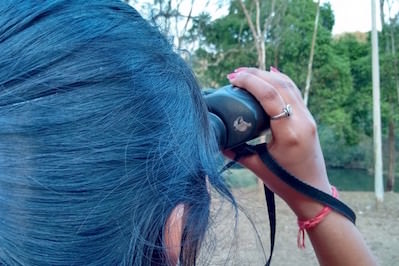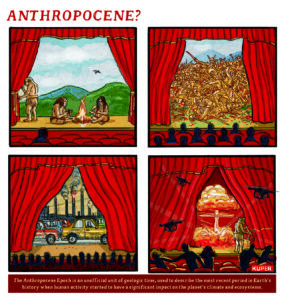Dire Effects and Warnings of Climate Change Are Going Unheeded
New scientific studies address lack of awareness of the adverse economic, social and biodiversity effects that climate change is already having.
By Tim Radford / Climate News Network

More field studies are needed to gather detailed information on species loss. (Aniket Suryavanshi via Flickr)
LONDON — The social and economic impacts of climate change have already begun to take their toll — but most people do not yet know this.
Politicians and economists have yet to work out how and when it would be best to adapt to change. And biologists say they cannot even begin to measure climate change’s effect on biodiversity because there is not enough information.
Two studies in Science journal address the future. The first points out that historical temperature increases depress maize crop yields in the US by 48% and have already driven up the rates of civil conflict in sub-Saharan Africa by 11%.
Economic growth
Hot weather in future could slow global economic growth rates by nearly 0.30 percentage points per year.
Almost as surprising, according to Solomon Hsiang, principal investigator in the Global Policy Lab at the University of California, Berkeley, is that nobody seems to be aware of these facts.
“People get so used to hot days, since they happen all the time, that they never stop to consider that those days are costing them,” Professor Hsiang says.
“But if people used different technologies or organised their lives differently to adapt to their climate, then we might be able to do dramatically better.”
“So much attention is focused on the future effects of climate change that hardships imposed by the climate today, which are often just as large, are ignored”
He and co-author Tamma Carleton, PhD student of agricultural and resource economics at Berkeley, reviewed more than 100 studies to confirm that climate change is already a major force in human affairs.
Hsiang warns: “So much attention is focused on the future effects of climate change that hardships imposed by the climate today, which are often just as large, are ignored. If we solve these problems today, we’ll benefit everyone, both in this generation and the next.”
Scientists have also repeatedly warned that wildlife is threatened by climate change. But the scale and pace of extinction is difficult to predict, according to a second study in Science journal.
Twenty-two biologists have listed several key kinds of biological information — life histories, physiology, genetic variation, species interactions and dispersal — that could help improve prediction outcomes for individual plants, mammals, birds, insects, amphibians and reptiles.
They have the computer models to simulate the future an animal might face, but not the data to put into the model.
Different responses
“Right now, we are treating a mouse the same way as an elephant or a fish or a tree,” says Mark Urban, an ecologist at the University of Connecticut, who led the study. “Yet we know that those are all very different organisms and they are going to respond to their environment in very different ways.
“We need to pull on our boots, grab our binoculars, and go back into the field to gather more detailed information, if we are going to make realistic predictions.”
And another of the report’s authors, Patrick Zollner, associate professor of forestry and natural resources at Purdue University, Indiana, describes the study as “a call to arms”.
He says: “The world is in dire circumstances. We are losing a lot of species, and we’re largely unaware why.
“How do we need to rethink the kind of data we’re collecting so we can take advantage of modern modelling tools to understand the outcomes of climate change for ecological systems? This could help us forestall losing wildlife that we later deeply regret.”
Tim Radford, a founding editor of Climate News Network, worked for The Guardian for 32 years, for most of that time as science editor. He has been covering climate change since 1988.
Your support matters…Independent journalism is under threat and overshadowed by heavily funded mainstream media.
You can help level the playing field. Become a member.
Your tax-deductible contribution keeps us digging beneath the headlines to give you thought-provoking, investigative reporting and analysis that unearths what's really happening- without compromise.
Give today to support our courageous, independent journalists.






You need to be a supporter to comment.
There are currently no responses to this article.
Be the first to respond.